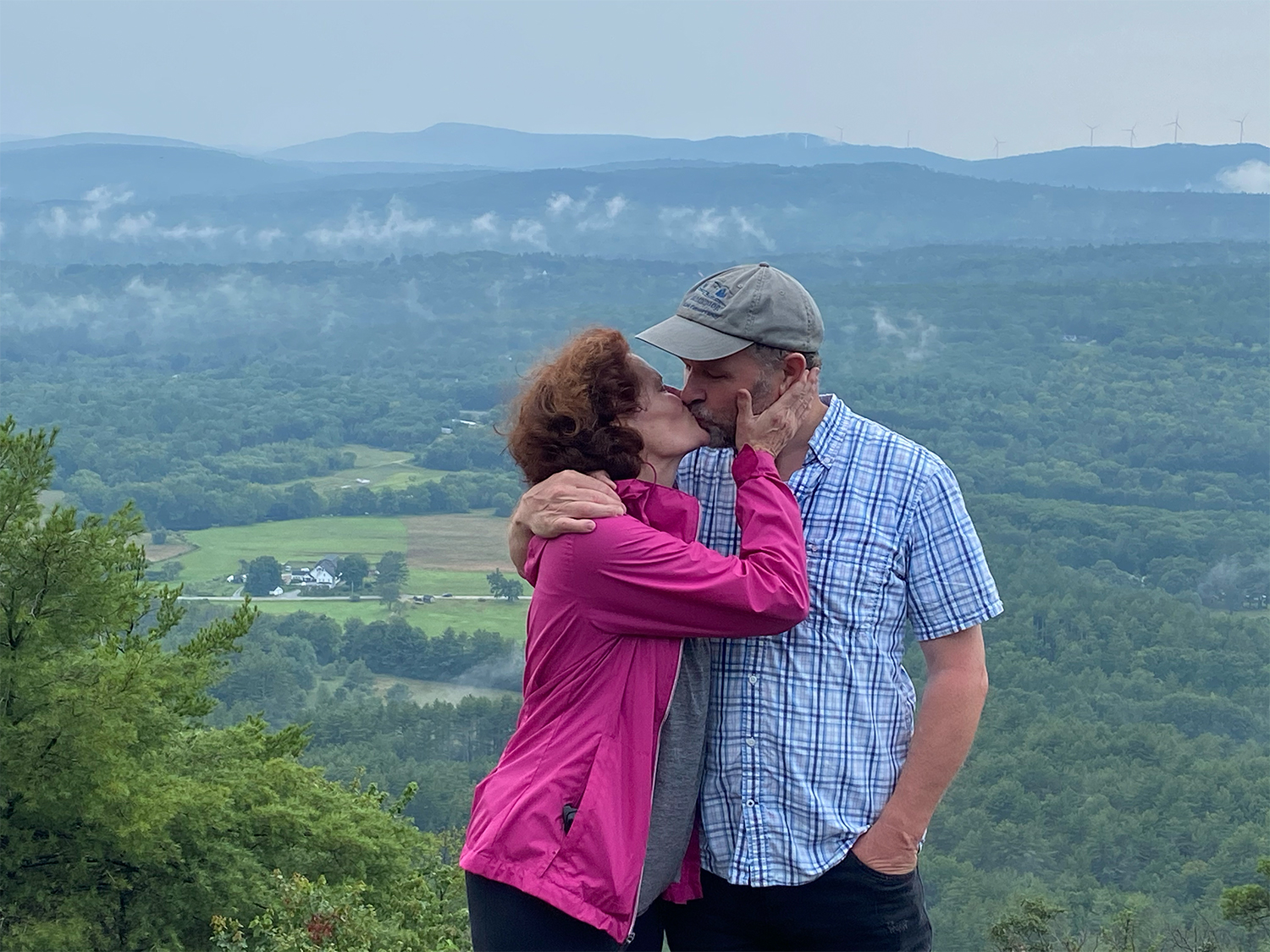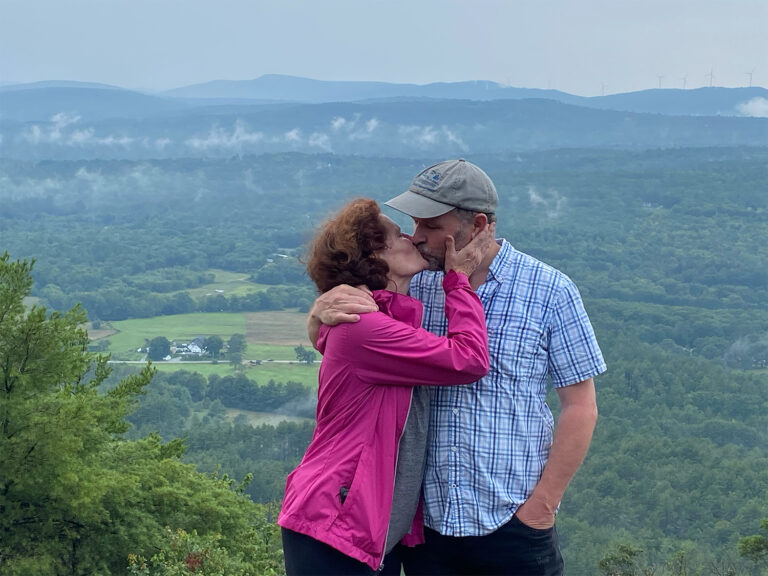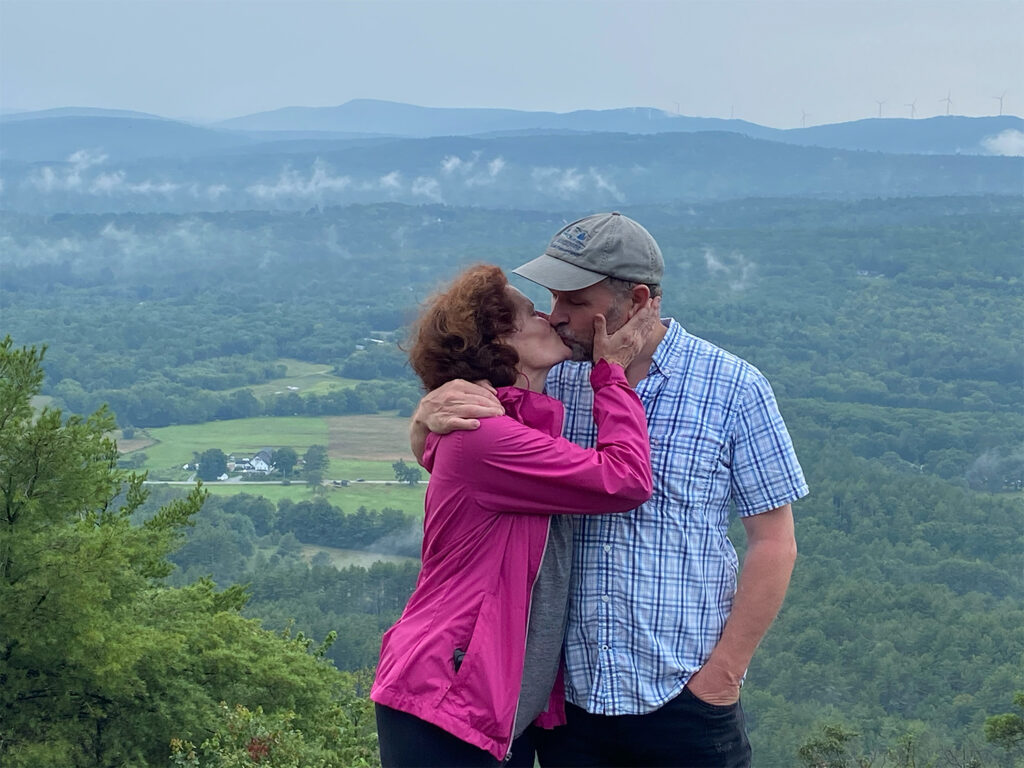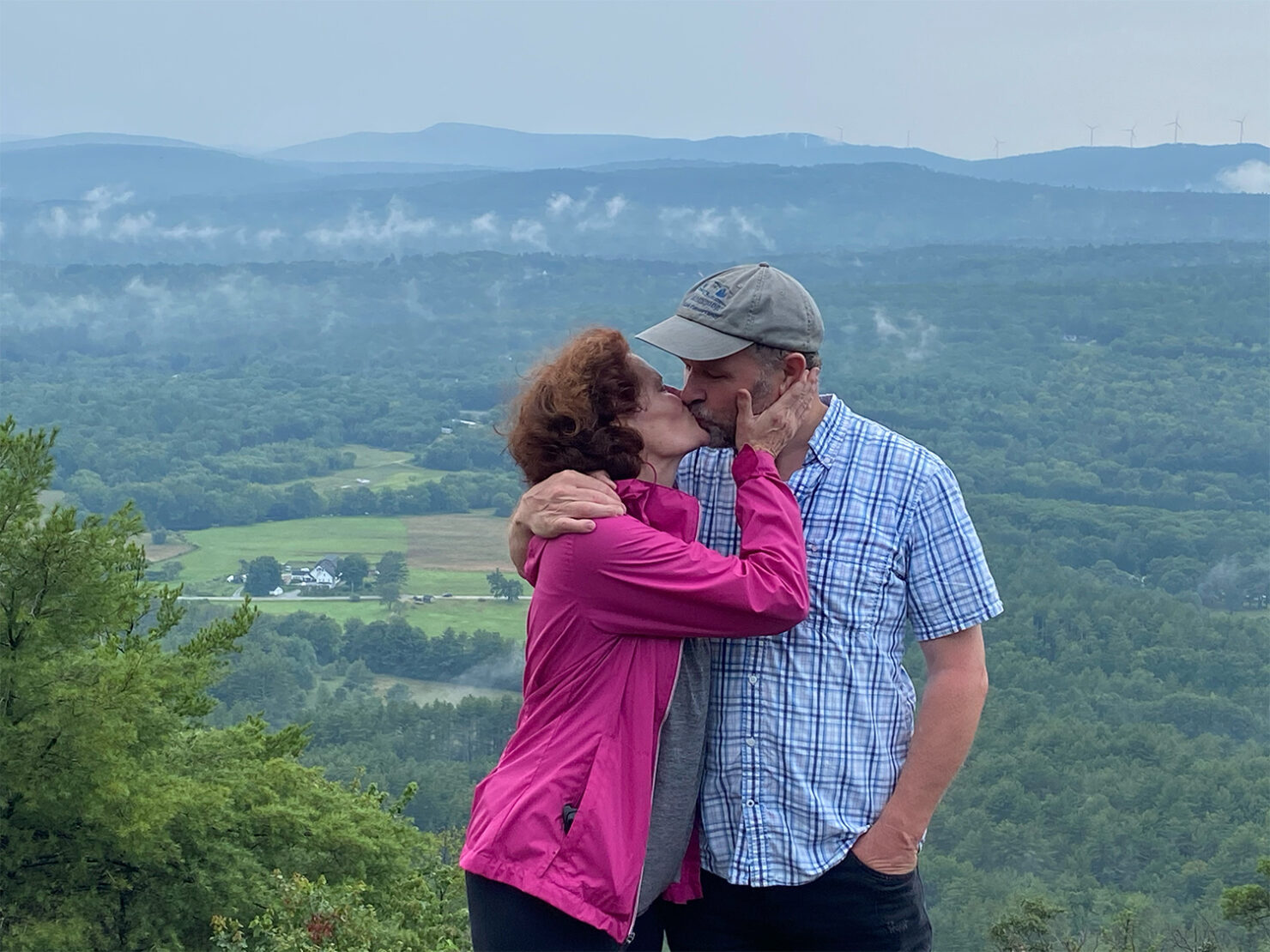On August 9, 2020, a hang-gliding accident left 52-year-old ornithologist and outdoorsman, Eric Masterson, shattered and clinging to life on a New Hampshire mountainside. Five years later, Masterson, now 57, has a new lease on life, thanks to the actions of first responders and the combined efforts of caregivers at Massachusetts General Hospital and Spaulding Rehabilitation Hospital, member hospitals of Mass General Brigham (MGB). Here, Eric, his wife, Tricia Rose Burt, and members of Eric’s care team share the story of this miraculous journey from ruin to recovery.
Eric Masterson: I’d just taken off from a ridge a few miles from our house when I hit a rough patch of air. My glider stalled, and I slammed headfirst into a cliff at 30 mph.
Tricia Rose Burt: I’d just walked in the door at home, and my phone rang. It was Eric’s friend, who said Eric had been in a horrible accident. By the time I got to the mountain, paramedics were there. It took 23 volunteer firemen three hours to carry him down in a litter.
Eric was taken to Concord Hospital, in Concord, NH, where doctors quickly realized the extent of his injuries. Eric’s neck and back were broken, along with his hand, several ribs, a foot, leg and arm. He had a punctured lung and head trauma. The decision was made to medevac Eric to Mass General, and, just before 11 pm, Eric was loaded onto a helicopter.
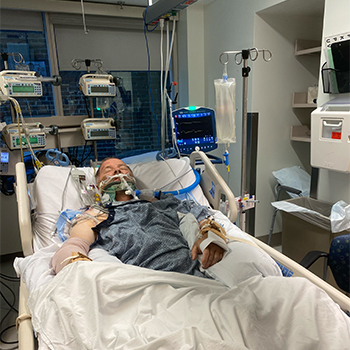
Tricia: I drove down and got to Mass General at about 12:30 in the morning. This was at the height of COVID, so I wasn’t allowed in. As I was trying to figure out what to do, I got a call from a Mass General social worker. He walked me through everything, got me into the parking garage and stayed on the phone with me until I was at the front desk of my hotel.
Ganesh Shankar, MD, PhD, interim director of Mass General’s Neurosurgery Spine Service: In cases like this, the trauma surgery service starts by identifying the injuries to line up the necessary specialists. Fortunately, the patient had some preservation of motor function, and that’s likely thanks to the first responders who moved him off the mountain. Treating spinal cord injuries is a team sport, and it starts with the people in the field. The first step for our team was to stabilize the spine to preserve that function and prevent further damage.

Tricia: There was so much happening, all at once. The nurses kept me going. I asked one of them if she would give Eric a message — this silly marriage code we have, where we say “brrr,” which is the sound trumpeter swans make to their mates — and she did.
Eric: It’s one of the only things I remember from my time at Mass General. Over the next 10 days, Eric underwent a series of surgical procedures to repair his elbow, leg, foot, spine and hand, as well as a complex skin graft.
Tricia: By day eight, I was exhausted, and sitting, basically collapsed on the floor in the hall outside Eric’s room. A maintenance worker passed by. I nodded at him, and he nodded back. A few minutes later, the man returned with a chair. I was just so grateful to everyone involved.

Thirteen days after his crash, on August 22, Eric was transferred to MGB’s Spaulding Rehabilitation Hospital to begin his recovery.
Dr. Shankar: As soon as we feel it’s medically safe, we get patients into rehab, and Spaulding is one of the best in the world.
Alana Casey, MSOT, OTR/L, CBIS, occupational therapist, Spaulding: I met Eric on his second day at Spaulding. He was non-weightbearing on one side of his body and his opposite hand was broken and non-weightbearing — which meant he needed a lot of help — but I could see his strength, determination and sense of humor right away.

Casey and the Spaulding team assessed Eric’s mobility, range of motion, strength and cognition and developed a rehabilitation plan.
Casey: It’s a matter of problem solving, looking ahead to determine the best ways for the patient to perform the basic tasks of daily living. In Eric’s case, he had a few advantages: he was active, his cognition was only slightly impacted and he had a very supportive spouse in Tricia. Together, we collaborated to set functional goals, determined how accessible their house was and determined what equipment they were going to need when Eric went home.
On September 15, Eric was released from Spaulding — but that didn’t mean the end of his rehab. In the weeks and months that followed, Eric made frequent visits to Spaulding’s Outpatient Continuity Clinic.
Tricia: On one of our first trips back to Spaulding, one of the doctors remarked that Eric was walking with a cane and carrying a cup of coffee at the same time — and how significant that was.
Jon Lowry, DO, Spaulding: The reality for many of our patients is that they are living in new bodies, with new abilities and limitations. Outpatient rehab ensures they are getting the support they need. We’re always here for patients, we never officially discharge anyone, meaning the door is always open if new challenges arise.
Today, Eric characterizes his recovery at 98%, and, although he still has difficulty turning his neck, he’s back outside and living an active life.
Dr. Lowry: Recovery means something different for every patient, and we work to respect that. In Eric’s case, recovery meant getting outside again and being able to appreciate the natural world. It might not include hang gliding anymore, but there are plenty of other ways to get outside. He exemplifies our ideal of not just rehabbing the injured body but enabling a person to resume ownership of their life. That’s a win.
Casey: One of the special things about rehab is that we get to know our patients very well. It was early in my career when I worked with Eric, and he really helped build my confidence as a provider because of the level of creativity it took to progress his independence while adhering to his many orthopedic precautions. He was also the type of patient who brought such determination to every session, which I was inspired by. I’ll never forget Eric.
Eric: It might be strange to say, but my accident was the best thing to ever happen to me. The culture of kindness that it exposed me to is something I’ll never, ever forget.
Tricia: It’s a miracle he’s walking; it’s a miracle he’s still alive; it’s a miracle he’s still Eric.
Dr. Shankar: Eric’s health and mobility are a testament to teamwork and the partnership between Mass General and Spaulding. There are so many chapters to a story like this, but from start to finish, it’s a beautiful dance.

To find out how you can support neurosurgery at Mass General, contact us.
